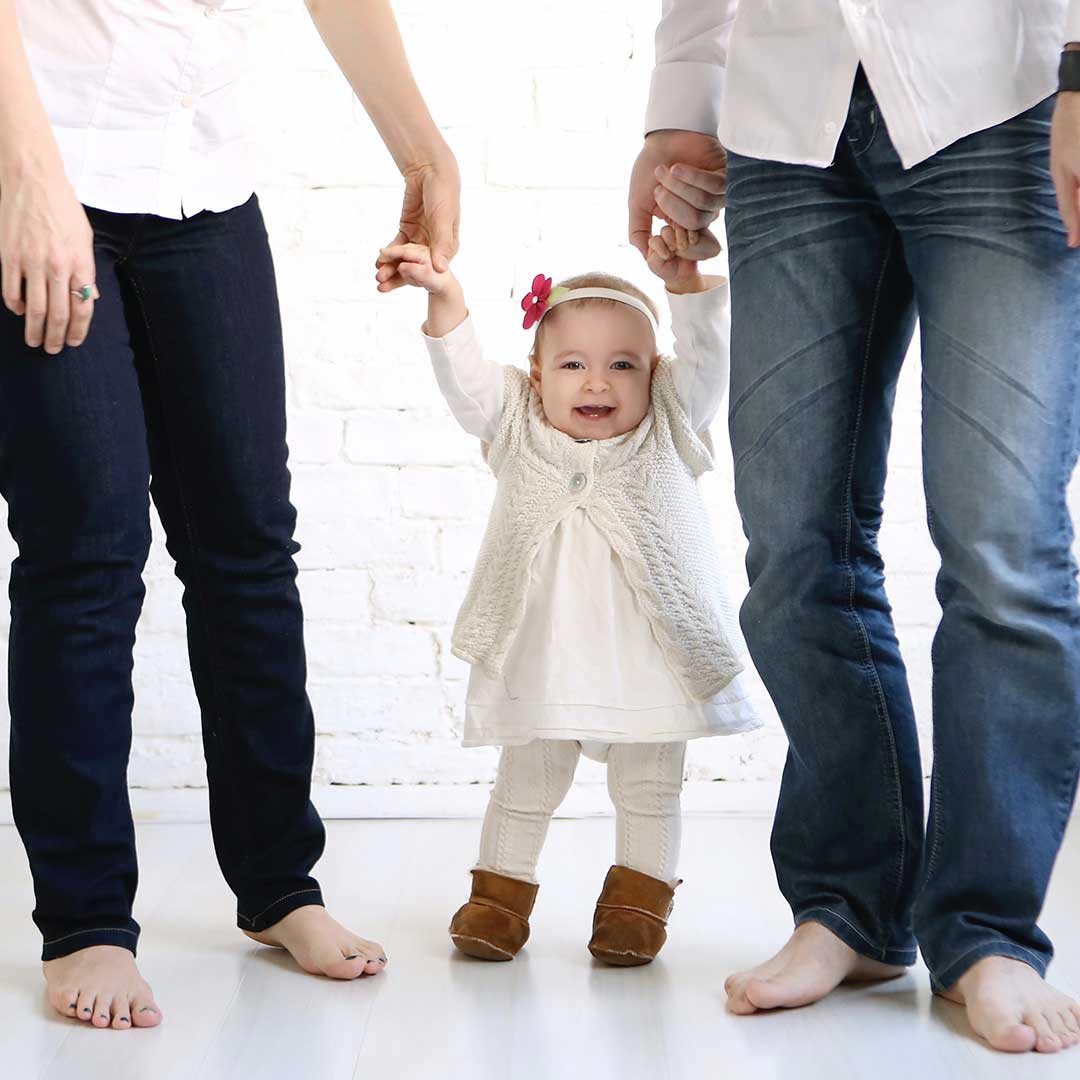The 15 Month Sleep Regression — What to Expect
Just when you thought you’d tackled the 12 month sleep regression and could count on some quiet nights of good sleep, your 15 month old is up in the night and upset! Time for the 15 month sleep regression! While not all babies will experience every single sleep regression, others hit every single one and it can be grueling. As with 4 months, 9 months, and 12 months, you know you’re in the middle of a sleep regression when your baby is experiencing the following:
- Increased fussiness
- Multiple night wakings
- Fewer naps or short “disaster naps”
- Changes in appetite
All sleep regressions occur because your child’s body and brain are preparing for — or right in the middle of — a major developmental change. As adults it’s hard to really understand how challenging this time can be for babies. We certainly don’t remember what it was like when we went through it. But as your child is learning a new skill (like walking ) or realizing something new and amazing about their world (that objects fall to the ground when you drop them), their bodies and brains are working HARD. So hard, in fact, that they just may not be able to keep up the skills and strategies they have learned to calm themselves, to sleep quietly through their sleep cycles, and even to play happily on their own.
Have no idea where to begin solving your child’s sleep issues?
Start with this guide.
What’s Happening to My Baby?
Two major changes happen that can cause the 15 month sleep regression. Many toddlers are learning to walk independently, and most begin transitioning from two naps to one nap a day. No matter where your child is on the spectrum of walking — still holding on to your hands or running across the room into your arms — they are likely on the move A LOT! Just like when they learned to sit up or to crawl, you may find your toddler practicing her new skills in bed instead of sleeping. She may be more excited to walk around her room at bedtime than to sit and read a book, or lie on the changing table for her diaper and jammies, than she is to go to bed.
Wondering about schedules for your toddler?
Read: Sample Schedules: Sleep and Naps From 6 Months to Preschool
At her 12 month sleep regression your toddler may have faked you out, appearing to be ready for only one nap per day when she really still needed two. Now, at the 15 month sleep regression, that transition is real and appropriate, but not easy! Some days she refuses her nap altogether and is ready to keep playing when you get her up and out of her room. Other days she may fall apart by midday and fall asleep in the car on afternoon errands. Other toddlers will come unraveled in the evening as their bodies transition and adjust to less sleep. Overall, bedtime (and nights) may get rough. Less daytime sleep can leave your baby overtired at bedtime and harder to get to bed smoothly. Being overtired can also contribute to more night wakings.
Need some more information about those naps?
Read: Baby and Toddler Naps — Everything You Need to Know

How to Support Your Toddler During the 15 Month Sleep Regression
To support your toddler in this exciting, and admittedly difficult phase, try these strategies:
- Give your child extra time to settle down in the evening with quiet activities
- Reassure your toddler by being loving and calm when they melt down
- Be flexible about naps. Some days she’ll need one, some days she won’t
- Keep a predictable nap and bedtime routine
- If your toddler needs sleep coaching, don’t transition them to one nap until they are sleeping through the night
What Can I do to Get Through the 15 Month Sleep Regression?
Remember that sleep regressions are temporary — usually between 2-4 weeks. To get through the 15 month sleep regression smoothly, try to be flexible. You may not be able to count on long daytime naps every day and you may have to move bedtime earlier on days your toddler doesn’t nap well. Respond to your toddler. Being patient and supportive while your baby is tired or frustrated, its appropriate — especially given how hard their brain and body are working! Stick to your GOOD habits. While it’s important to be supportive and responsive to your child, don’t fall back on old habits or create new ones out of desperation. Resist the temptation to nurse or rock your toddler to sleep. Your child will get back to better sleep habits soon.
Sleep regressions pass and your toddler will have newfound skills and confidence to show for it. And just think what fun you can have when your child only takes one nap per day! If, after trying your best to get through the 15 months sleep regression, you find yourself with new unwanted habits or sleep challenges that don’t resolve on their own, check back in to this blog or consider speaking with a Gentle Sleep Coach.







